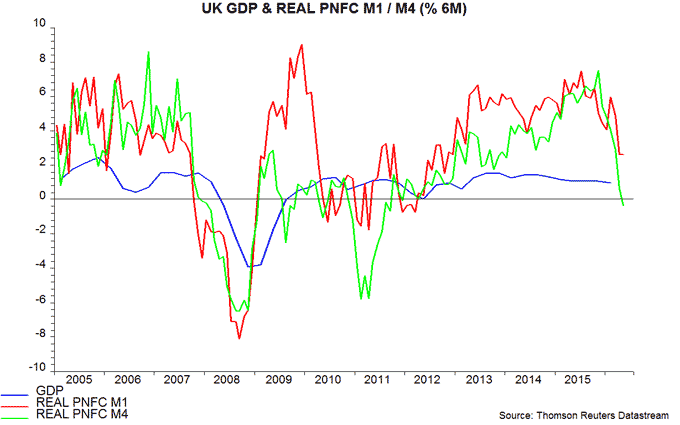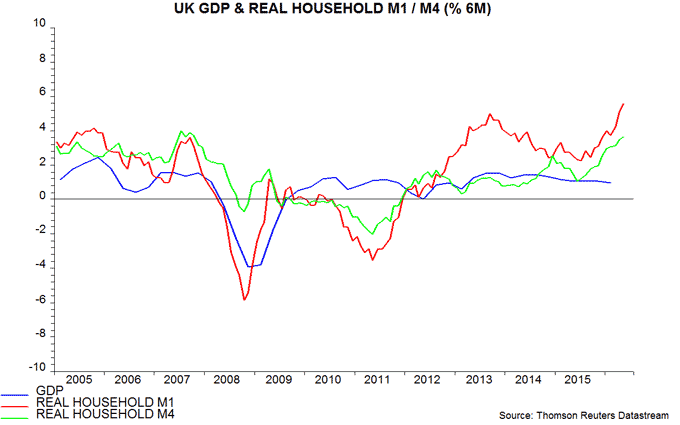UK corporate money signalling rising caution pre EU referendum
UK corporate money trends have weakened since late 2015, consistent with companies putting expansion plans on hold pending the result of last week's referendum.
Corporate money (i.e. held by private non-financial corporations, or PNFCs) will be a key indicator for assessing whether the referendum shock will push the economy into a recession. Corporate money leads business investment and overall activity, probably because companies adjust their liquidity position to reflect their spending / hiring plans. Real (i.e. inflation-adjusted) corporate money contracted before the 1979-81, 1990-91 and 2008-09 recessions, as well as the 2011-12 “double-dip” slowdown.
The first chart shows six-month growth rates of real corporate narrow money M1 and broad money M4, along with the two-quarter change in GDP*. Both measures were strong last autumn, consistent with recent “hard” data suggesting solid GDP expansion during the first half of 2016, allowing for a typical nine-month lead from money to activity.

The six-month change in real corporate M1, however, has fallen significantly since February, while that of real M4 has turned slightly negative. M1 is preferred here for forecasting purposes: it is closer to the concept of "transactions money" and appears to work better empirically. An example of the superior performance of real M1 was its mild contraction before the 2011-12 slowdown; a much larger fall in real M4 seemed to predict a recession. The recent decline in real M1 growth suggests that companies were planning for slower expansion but not a fall in activity before the referendum.
Weakening corporate money growth contrasts with strengthening household trends. Six-month growth of household real M1 and M4 rose to 15- and nine-year highs respectively in May, suggesting solid near-term consumer spending prospects – see second chart. Household income and money growth, however, may slow as companies curb expansion plans and hiring. Corporate money often leads household trends: corporate real M1 contracted before household real M1 ahead of the 2008-09 recession.

The base-case assumption here is that increased uncertainty due to the referendum shock will subtract 1.0-1.5 percentage points from GDP growth over the next 12 months, implying a significant slowdown rather than a recession. This view will be revised negatively if corporate real M1 contracts over coming months.
*M1 = notes / coin + sterling sight deposits. M4 = M1 + sterling time deposits, short-term bank bonds and repos.

Reader Comments